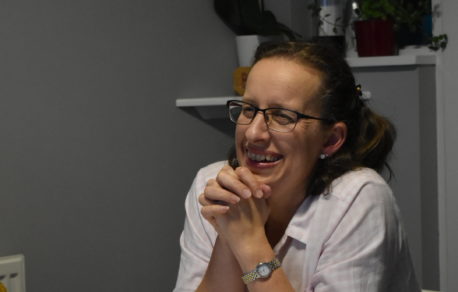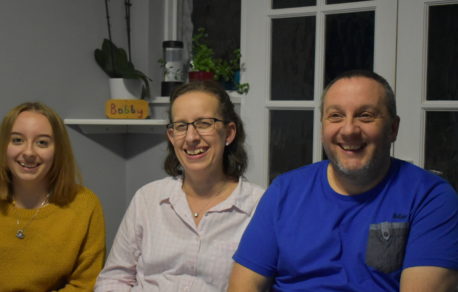
Inclusivity in engineering on International Women’s Day
On this year’s International Women’s Day, Foothold Trustee Kate Sugden writes about the importance of inclusive engineering and actively seeking the input of those who face different challenges in their lives. Kate has been a Foothold Trustee since October 2020 and is also a trustee of the IET. Kate has a passion for outreach work and encouraging people to enter the engineering field regardless of their background.
Happy International Women’s Day!
When I was asked to write this blog on “the challenges of women in engineering and how Foothold can support them” I hesitated to say yes. I felt it was something I should do but concerns about what I could add to the discussion crept in. After all, how can I speak for most women in engineering? I don’t have children, I’m not (at this time) a carer and I’m gay. So, my own personal Venn diagram of experiences will be different to many other people’s.
But then again, it is also largely the same. I spend a lot of my time being ‘an engineer’ and a lot of the rest of my time being ‘the engineer’, as the odd one out in a social group! So maybe the need to label and define isn’t helpful after all, because it can emphasise that you’re not part of the norm, whatever that may be.
Inclusivity without box-ticking
For the last three years at Aston University, we were fortunate to have RAEng Visiting Professor Dawn Bonfield working with us on inclusive engineering. This has inevitably resulted in many discussions about what ‘inclusive’ means. My colleague Becky Broadbent commented: “In my opinion, there is a balance between building an inclusive community and creating boxes that people are placed into”. This is a really important point, and especially true at a time when you might need Foothold’s support.
Because dealing with large life challenges and feeling like you’re in the “other” box in the workplace to start with, can make you feel more isolated and less supported.
Supporting all talent
Dawn helped us develop a model where we teach our students that there is strength in diversity. That we need teams of engineers (as well as non-engineers) from different disciplines, backgrounds and experiences to solve the problems we face as a society.
It’s important that students know – their unique perspectives and the individual challenges they have faced will enable them to make a valuable and innovative contribution to engineering.
If we don’t acknowledge this, we risk losing this large pool of talent who are put off from joining a fairly conservative workforce, to the detriment of us all.
Once we fully embrace and celebrate diversity instead of labelling our differences, everyone will feel more supported. I feel really hopeful that if we can give our young engineers the ability to think and work inclusively, they will help us create that fully inclusive environment.



